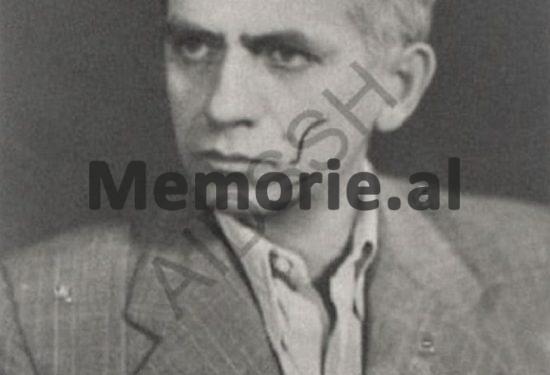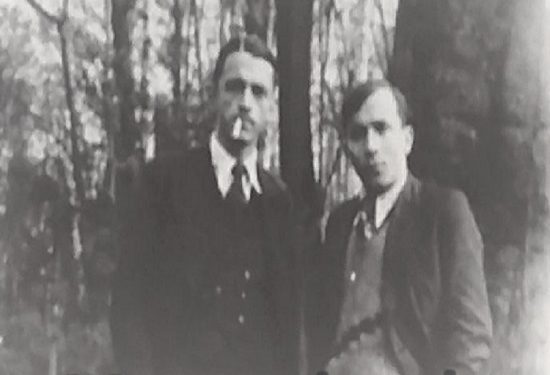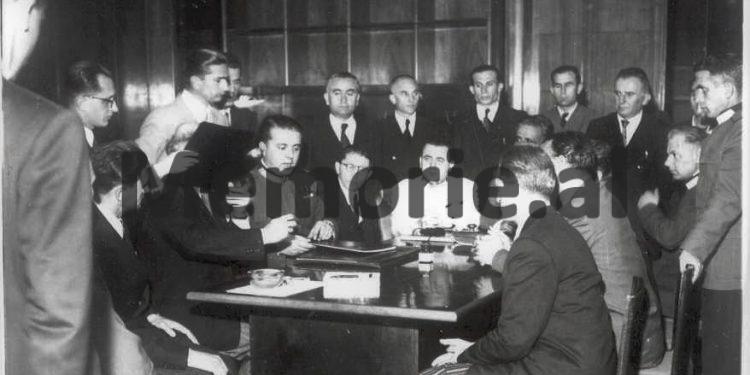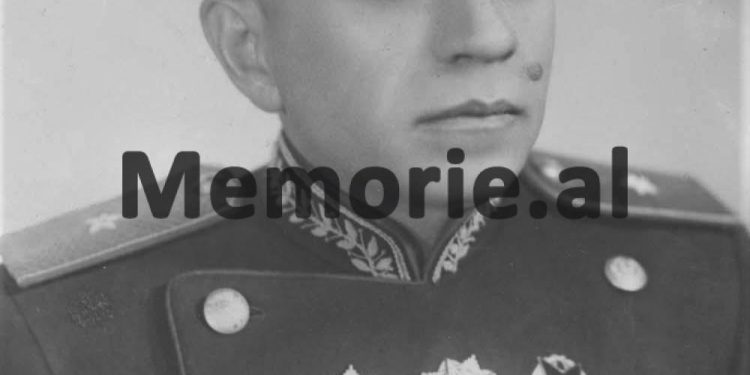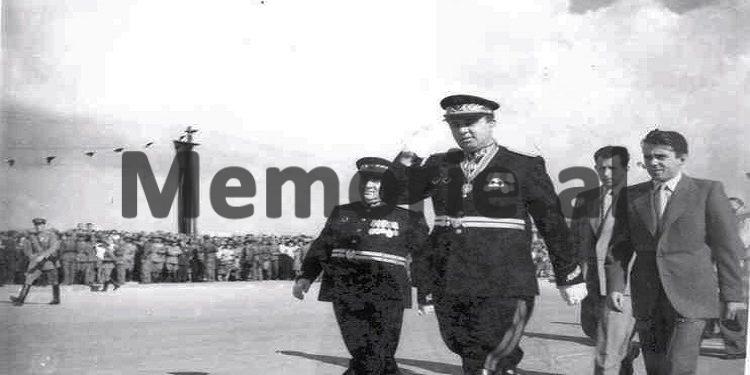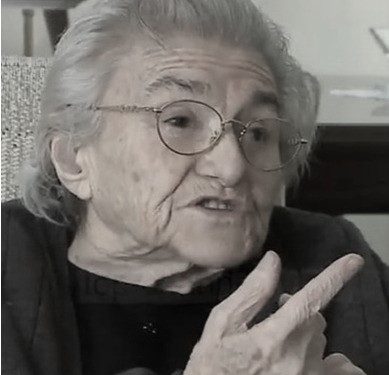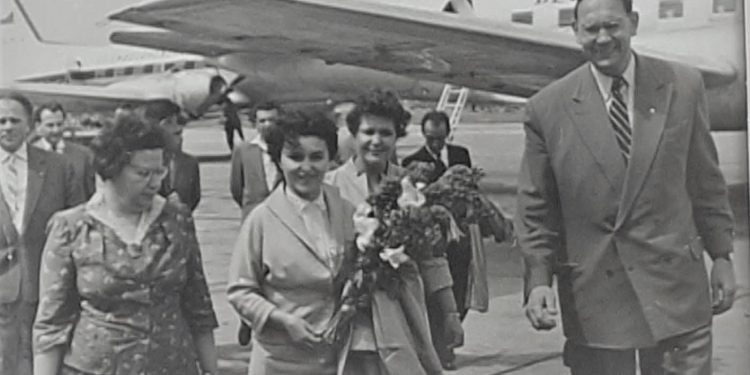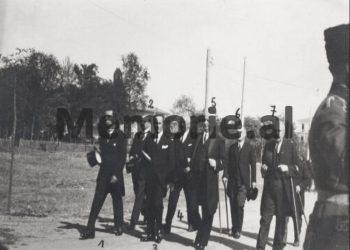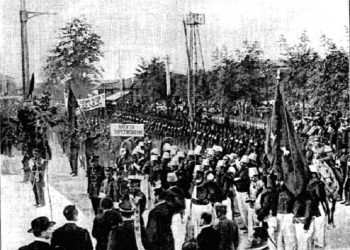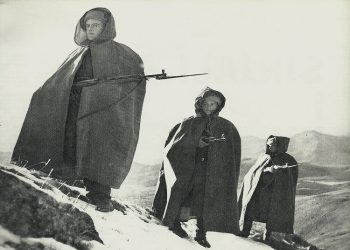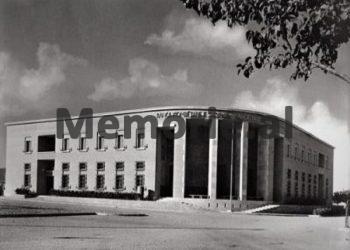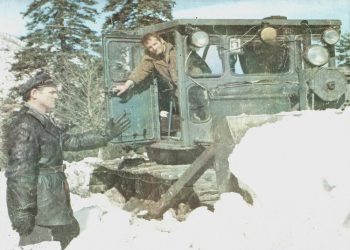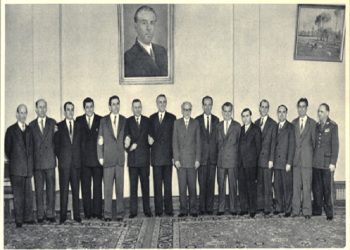Memorie.al / After the 90s, of the former senior officials of PPSh who had been Enver Hoxha’s closest collaborators for years and who were then punished by him, with prison or exile, only two of them, had the courage and courage to publicly apologize for what they had done when they served in high positions in the leadership of the PPS and to denounce its wrong political line, as well as Enver’s many crimes Hoxha, from the creation of the Albanian Communist Party, in November 1941, (when he became its head), until the collapse of the communist regime, at the beginning of 1991. They were; Bedri Spahiu, former member of the Political Bureau and secretary for propin, of the Central Committee of the Communist Party, deputy of the People’s Assembly and Minister of Education, until June 17, 1955, (when he was dismissed from all party functions and state, accused as “the anti-party and enemy of the people”, to later suffer prisons and exiles, until the collapse of the communist regime in the 90s) and Liri Belishova, former member of the Political Bureau and secretary of the Committee Central of the PPSh, for propaganda, until 1961, when he was dismissed from all party and state functions, accused of being a revisionist, to end up in exile, until 1991. While Liri Belishova, asked for a public apology, after in 2000, (in an interview given on the ‘Opinion’ show of the journalist Bledi Fevziu on TV KLAN), Bedri Spahiu, did the same thing in 1991, with a long article that he published in the newspaper “Republika” (directed by Ylli Rakipi and Lutfi Dervishi), on June 6, 1991, with the title: “Bedri Spahiu, revising Bedri Spahiu”, an article which Memorie.al is republishing in its entirety, in two issues.
From Bedri Spahiu
BEDRI SPAHIU REVISES BEDRI SPAHIU
I send these memories as a message to the 10th Congress of the Labor Party, through the newspaper “Republika”. From the beginning, with the greatest pleasure, I greet our university students, wonderful and blessed sons of martyred Albania, who will remain in its history, as a heroic generation of this nation, as the initiator generation of democracy, which is the most precious thing in a people’s life. It is an international rule that any party, whatever it may be, when it is faced with the demands of its ideological and organizational renewal, the first thing it does is to open its doors to dissent and thus pave the way for its renewal. . The organizers of the 10th Congress of the Labor Party did not do this.
Is it because of lack of experience or forgetfulness? No, neither one nor the other, since this action originates from the communist logic of those preparing the Congress, from the Enverist and totalitarian mentality of the patriarch of the communists. A dangerous and unfortunate initiative for the members of this Congress, which claims to be the Congress of the rebirth of the Party and of the communists, of throwing away sectarianism and myopia, arrogance and absolutism of the Albanian world.
It happened to the Communists as it once happened to the heirs of absolute kings; “Le roi est mort, vive le roi”. (The king died, long live the king). I am the same dissident that I was that day when I was kicked and expelled from the party. That’s how I am and that’s how I will remain, because I value my exception as a blessing in my life. I am one of those dissidents who opposed Enver with all the strength and manliness of my generation.
I would have the seat in the 10th Congress, regardless of the wishes and intentions of liberals or conservatives. I would be with Ramiz Ali, since he, as soon as he took power, put an end to the separation of the people with the class wall, and the conservatives could no longer issue denigrating and annihilating slogans. But this liberator, being Enver Hoxha’s heir, became more dreamy and destructive than his leader; more conservative and repressive than his predecessor (the student surpasses the teacher). He used repressive forms that Enver could not even conceive of. He not only executed those who tried to escape, but dragged the bodies of the victims, through the streets of cities and villages, to terrorize those who tried to escape.
He promised to follow the path of Enver, according to his teachings. He introduced the law on the protection of national monuments, which in practice means a law on the protection of Enver’s monument. In his equivocal policy, which sometimes distanced him and sometimes approached him, he lost the credit of the people to such a degree that the people refused the exercise of power to Monochartism.
Those who prepare the 10th Congress refuse to the Communists the materials of all the dissidents, their historical documents and among them those belonging to Bedri Spahi, his wills, sent from prison to the Central Committee, his defense in court, the material of the plenum that condemned him in 1955, all the material of his struggle for a legal and democratic state, etc.
I know very well that; none of those who were condemned to continue exercising dictatorial power in Albania do not even need to listen to my thoughts. Yes, the dictatorship that was cruelly imposed on this people for 45 years, taken under foot, lied to, deceived, has ended, and I, Bedri Spahiu, declared “enemy of the people”, “fascist” and the most monstrous enemy that has gone through the courts of the Republic”, today I feel strong, to publicly explode and inform thanks to the opposition, being convinced that my truths will serve to make the people and communists more aware of some events important of the Party.
The Presidium of the People’s Assembly unanimously decided that I should become the Prosecutor of the Special Court, to defend the people’s case before this trial. It seems that in this matter as the winner, I defended him well. But, remembering these 46 years of terror, cruelty, and misery that my people have gone through, I am ashamed that I was the prosecutor of that Special Court. I revised myself, ideals and everything sacred that I had in my life. I am no longer the prosecutor who brought out neither the National Liberation War, nor a supporter of the communist utopia, the most generous that our generation brought out.
Communist congressmen!
One of your ancestors is addressing you, one of the first missionaries of Albanian communism, part of a generation that devoted its youth, dreams and best energies to a high and noble ideal, but, unfortunately, utopian. Today’s university youth, with their actions, emerged as a dissident force for freedom and democracy. This event, I could not even think that it would happen, even though it was exactly us, the young people of my generation, who were at the forefront of the war for liberation. But today, we, yesterday’s dissidents, are proud of all today’s youth and appreciate it, because they proved not only heroic, but also more knowledgeable and intelligent than us.
We have the honor to walk the path of our youth, to obey its initiatives and wait for its criticisms, as a need to be freed from the heavy burden of our mistakes, numerous and funny. It is our duty to honestly submit to the accountability of this youth. And it should start, at least a little, with the years 1930-’38. What is the truth that at that time there were many circles of antizogists who talked about politics, who dealt with politics. These were some of the most prominent intellectuals of our country, whom we, the communists, as we were, megalomaniacs, pretentious and absolute, called people of loggias and cafes.
But the time had come to come out of our shell in the light of reality, of confrontation, because we were not only facing the Zogists, but also before the fascist occupation. This understanding that we had for intellectuals, could not but lead me to show a special interest in Enver Hoxha, who I had in my youth, a classmate. He had returned to Albania and was often seen in the cafes of Tirana, among its intellectuals. This “changed” and “Europeanized” man, in my opinion, would be suitable to be active in our movement. But Enver Hoxha told Tahir Kadare (whom I sent to talk) that he refused to meet with me and added: “Don’t drag me into these things.”
The communist movement in Albania was born from the heroic constellation of communists from the Korça, Young, Shkodra, and Zjarri groups and from the Tirana Military group and Gjirokastra communists. These groups include all those who were annihilated by the intrigue of the Comintern. The founding conference of the Albanian Communist Party, which Enver’s apologists talk about, is more of a diversionary trend than a true explanation of the situation. Not one, but two, are the conferences for the founding of the Party. The first conference was called by Dushan Mugosha.
It included the leaders of the groups of that time, such as: Koço Tashko, Kristo Themelko, Qemal Stafa, etc. I was a representative of the Military Group and of Gjirokastra. All were for the unification of the communist movement. But we differed on the question of whether Dushan should be believed to be an authentic Comintern envoy on the matter. All the delegates insisted that he present an authorization document. Mugosha, who was a qualified organizer with a lot of organizing experience, was not up to the task. He angrily said to the representatives of the groups: “You want me to come to you like a delivery mule with a stamp on the back”, and raised his right leg.
Dushan kept his word. He did not return to bring any authorization. Circumstances led to the release of Miladin Popovici from prison, who was commissioned by the Central Committee of the Yugoslav Communist Party to make available all his great experience to help the Albanian communists to unite. With Koço Tashko, we have often discussed the issue of our organization.
He explains it like this: “At the conference for the formation of the Party (the second), two delegates had to come for each group. And my group from Korça presented itself with one delegate, which was me, Koço Tashko. Miladini tells me that, I had to bring the second delegate of the group. I left the room to find a friend of the group. On the way, I met Enver Hoxha, who was a member of the Korça Group in Tirana. I took Enver and took him as a delegate to the conference.”
While Tuk Jakova told me: “I was at the second conference of the formation of the Party, but no one was elected first secretary there. How and when Enver Hoxha became first secretary, this has always been a mystery and I came to the conclusion that; the first political secretary of our Party was the product of Miladin Popovic’s flirtations with Enver Hoxha. Miladin was an intellectual, Enver a liar. A love and friendship of intellectuals was created between these two people. It is a fact that Miladin liked things of personal service, such as fountain pens and golden clocks and rich tables, and these things were generously served to him by Enver Hoxha, who disposed of these, through his connections and the help that the people gave to the communist movement. .
Why was one of the leaders of these communist groups that were represented at the conference not elected first secretary of the Albanian Communist Party? Miladin Popovic, honestly thought that; it was excluding group leaders from monolithic leadership. Time proved that such a solution was both utopian and harmful. During the days of the Party formation conference, I met “Jhepi” (Sadik Premtja) and “Baca” (Ramdan Çitakun) at “Jhepi’s” house. He informed me about the developments of the conference. “Put it back,” he said. This, because the conference accused “Jhepi” of not having denounced the entire element of the “Youth Group” (with which the Party was formed, all the leaders of the groups had to reveal the names of the members).
“Pocket”, explained this action of his, in his own way. I justified it in my own way. My thesis was that; the main thing is the union, and this union will necessarily mean the full denunciation of the members of each group. If the affairs of the conference have taken the turn you say, I say, and then let’s leave it to time to judge the results. “Baca”, who had a nature that listened more than he spoke, was attentively silent in the conversation that took place between me and “Jhepit”. Time showed that he, the lab of Vlora, was right and not me, the lab of Gjirokastra. “Jhepi” was convicted as a traitor to the Party and suffered the consequences of an unjust, Enverist-type punishment. He went to France, where he joined the French Communist Party. I melted into the dark dungeons of the egalitarian and sadistic regime of Enverian communism…!
In 1953, I was returning from congresses of communist parties in a number of People’s Democracies. At the end of the report I made to the Central Committee, I made this note with a pen, with my own hand: “At the congresses of the Communist Party of Hungary and Czechoslovakia, the question of the cult of the individual in these two parties was raised. I believe that the time has come this issue is also raised in our party”. In the plenum that followed, Enver Hoxha came up with the thesis of revising the cult of the individual in our Party and began his report like this: “An intolerable situation was created in our Party. It is enough for me to appear in the window or on a stand, for the masses to burst into frenzied chants of “Enver, Enver”!
I have told my friends many times to put an end to this practice, but the Bureau’s friends have thought that I raised this issue, based on personal considerations. “It’s simple Comrade Enver”, they thought, that’s why I raised this issue and continued to leave things as they were. No! Enver Hoxha did not start from individual considerations, as those Bureau colleagues remembered, but from the consideration of the theoretical requirements, of the life of the Party itself”. After this short introduction, Hysni Kapua stands up and says: “It is true, Comrade Enver, he has always advised us as he says, and that we have understood as he explained.” The truth was quite different, that Enver Hoxha, never in the Bureau, nor in private, never spoke about his cult, he even had no way to speak, because the very notion of the cult of the person was unknown to him time.
For Enver Hoxha to lie, it was natural for me, because he was the antithesis of honesty, but for Hysni Kapo to become Enver’s witness, that didn’t even cross my mind. However, I took Hysni Kapo out of my heart, because he had been a collaborator of mine, in all the vicissitudes of the war of the First Zone and deputy political commissar of this zone. “A horse is not sold because it stumbles for the first time”. None of the members of the Bureau who were present approved Hysni Kapo’s testimony, but none, including me, opposed it. Enver Hoxha was the most hateful and oppressive dictator, he was the organizer of the systems of hitting areas, social groups, nationalists and communists.
Enverists attribute to their leader all the good moral qualities of a leader. I, being his opponent, can only attribute to him the most negative qualities that the dictatorial figure of all time has ever had. Our country has been prosperous in producing dictatorial leaders, such as the constitutional monarchist Ahmet Zogu, the Pashalars, such as Ali Tepelena, etc. Enver Hoxha was great because he was shameless. No one, apart from the satanic logic of this leader, could have devised the policy that our system followed against the whole world, in the name of such a heroic people, who wanted to live on grass, of a people who have “cracked history with sword in hand”.
No one from our generation could do what Enver Hoxha did, to declare and present himself as surrounded, isolated, being he the subject of this isolation. None of us dissidents would dare to make Albania pro-Soviet, pro-Chinese today, to declare them tomorrow as the most furious enemies of our country. In the report of the Political Bureau, of the 9th Plenum, Hoxha stated:
“It is true that in Berat, we punished Liri Gegë more than she deserved, but with the activity she developed later, she showed that she deserved the punishment we gave her”.
“It is said that Kristo Themelko killed many people during the liberation of Tirana, but the important issue is that all those who were killed by him were enemies”.
In June 1955, Enver Hoxha concluded with his proposal: “It is true that today we do not have evidence for such a severe punishment of Bedri Spahi, but the Party will surely give us this evidence”. This was a trend of complete degeneration of the “Zeus” of justice, a challenge against the entire legal thought of the people. And the injustices started from Mukja. It was presented as the biggest defeat of the time and Ymer Dishnica became the victim of that time. What is the truth in all this?
In the Helmës plenum, the issue of Mukje, Berat’s opportunism, Ymer Dishnica’s responsibility in the division of power and Gjin Mark’s compromise with the Germans was presented. Dishnica and Gjin Marku were two of the bright figures of the National Liberation War. I was the one who demanded in the plenum of Berat, the removal of Ymer Dishnica from the Central Committee and this was for me then, a necessity of life itself, a requirement of the circumstances, of the conditions where I was born, I fought and worked and I am me again, that dissident, who disdainfully rejects that proposal and who restores to the pedestal, these two bright figures of the Anti-Fascist National Liberation War.
Unfortunately, my proposal was also accepted by Enver Hoxha. There was no way it could be otherwise. Throughout his life, in the entire pro, con, or abstention decisions, Enver Hoxha has acted in this way, from an opportunistic and sectarian basis, from the basis of immediate personal interest, or perspective. This has been a quality that has characterized him and given him the superiority of the dictator over his dissidents. They say, in Mukje, Ymer Dishnica shared power with the National Front. It would have been better if he had done it, but Ymeri in Mukje acted completely according to the instructions he had received from the Party. But let Ymer Dishnica speak for himself.
The revision of Berat was an attempt by Hoxha to remove himself from the position of a wet chicken. In that plenum, it was said that Enver Hoxha, throughout the National Liberation War, has been opportunistic and sectarian, this activity from both wrong sides, and many examples were brought. Sejfulla Malëshova, said that; Our party was turning into a party of terrorists. I am one of those most ardent partisans of the First Congress, of that congress, which was called the congress of the war against Trotskyism and the Yugoslavs. At the end of the session that ended with my discussion, Mehmet Shehu approached me and shook my hand for that discussion, then addressed Enver Hoxha: “It was a discussion that completed your analysis of the congress.” Enver’s face darkened, he did not drink.
Twice Enver Hoxha has appointed a prosecutor of the two most important historical trials of our country, an ignorant of the field of justice, like Bedri Spahiu. The first time, as a prosecutor of the Special Court, to convict the so-called “enemies of the people” and the next time, a prosecutor of the Court of Koçi Xoxes. Today I feel ashamed, that I played the role of the prosecutor of those trials. The communists know my position towards the 1st Congress and towards Koçi Xoxes (whom I acquitted in the trial against me), they also know the song that the people sang in those days of the Special Trial: “Who liberated Albania / Koçi Xoxe with the Party/ Who created the Army/, Enver Hoxha with the Party,/ Traitors but rats,/ Bedri Spahiu condemned them”.
Today, I would say, “Too much glory, for unglorious people.” As a prosecutor of the Special Court, I had to, according to the law; assist in the execution of 17 convicts. I was between the convicts and the firing squad. When the commander of the firing squad gave the order, a movement was seen in the line of convicts, who turned their arms to the barrels of their guns, as the commander had ordered. Only one man had the courage to defy the order. “No one should turn their arms from the barrels, as only traitors are killed from the back, and we are not traitors. History will prove this.” This was Bahri Omar, a smart and patriotic man. “Events will take another path,” I answered with conviction.
Some of them did not listen, while others entrusted me with their trusts. Among them, Javer Hurshiti and Tasim Bishqemi, asked to preserve the inviolability of their families and children. I told them and guaranteed that; their families would have the same treatment in Albania as all residents. God knows how much they believed in these slogans of the Prosecutor of the Special Trial. But the events developed in such a way that refuted my statements and shamed the declarant and all those who claimed to be builders of a new and happy human Albania. Memorie.al
The next issue follows




